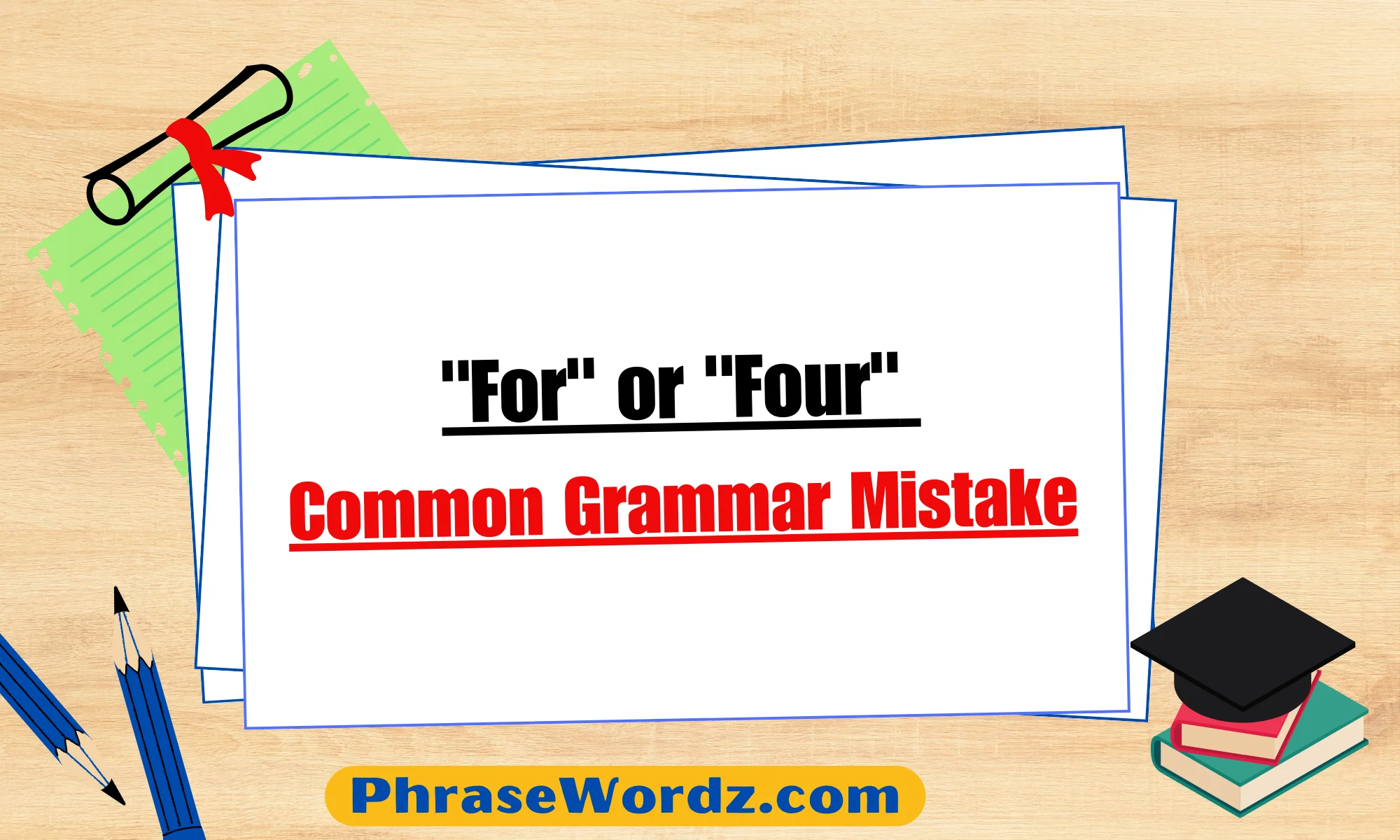The English language is filled with words that sound identical but have entirely different meanings and spellings. These are called homophones, and one of the most commonly confused pairs is “for” and “four.”
Despite their identical pronunciation, the words “for” and “four” serve very different purposes in writing and speech. Misusing them can lead to confusion, especially in formal settings like emails, professional documents, or academic writing.
This article dives into the nuances of these two words, provides detailed explanations, and offers examples and scenarios to help you master their usage.
What Does “For” Mean?
The word “for” is a preposition commonly used to indicate purpose, duration, or direction. It can also show support, benefit, or cause. Its versatility makes it a frequent word in the English language.
Common Uses of “For”
- Indicating Purpose:
- Example: This gift is for you.
- Indicating Time or Duration:
- Example: We have been waiting for two hours.
- Expressing Support or Benefit:
- Example: She is cheering for her favorite team.
- Indicating Cause or Reason:
- Example: He was punished for being late.
- Substitution or Exchange:
- Example: I’ll trade this book for that one.
What Does “Four” Mean?
The word “four” is a numeral representing the number 4. It is used in counting and quantitative contexts. Unlike “for,” it has no other grammatical functions or uses.
Common Uses of “Four”
- Counting:
- Example: There are four apples on the table.
- Quantitative Expressions:
- Example: We need four volunteers for this project.
- Measurements or Scores:
- Example: The test was graded out of four points.
Scenarios Highlighting “For” and “Four”
Scenario 1: Formal Email
Incorrect Usage:
Subject: Request Four Your Approval
Dear Darcy,
I am writing four your approval on the budget proposal submitted last week. This initiative will be a significant step four achieving our goals.
Best regards,
Elizabeth
Correct Usage:
Subject: Request For Your Approval
Dear Darcy,
I am writing for your approval on the budget proposal submitted last week. This initiative will be a significant step for achieving our goals.
Best regards,
Elizabeth
Scenario 2: Casual Conversation
Incorrect Usage:
- Friend: “How many tickets did you buy?”
- You: “I bought them for.”
Correct Usage:
- Friend: “How many tickets did you buy?”
- You: “I bought four.”
Why Do People Confuse “For” and “Four”?
The confusion arises primarily from their identical pronunciation. In spoken English, the distinction is clear only when context is considered. However, in written English, they must be used appropriately to avoid misunderstandings.
Tips to Avoid This Mistake
- Pay Attention to Context: Is the sentence about a purpose or a number?
- Visualize the Word: When writing, think of the numeral 4 when considering “four.”
- Practice with Examples: Regularly use these words in sentences to reinforce their meanings.
- Proofread Your Work: Check for homophone errors before finalizing your document.
Describe the Difference Between “For” and “Four”
| Aspect | For | Four |
|---|---|---|
| Type | Preposition | Numeral |
| Purpose | Indicates purpose, time, support, or cause | Represents the number 4 |
| Usage Examples | I am looking for my keys. | There are four keys here. |
| Common Confusion | Sounds like “four” | Sounds like “for” |
| Grammatical Role | Functional | Quantitative |
Understanding the difference between “for” and “four” requires attention to context and purpose. With practice and awareness, you can easily avoid this common mistake. Take time to proofread your work and ensure your intended meaning is clear.











